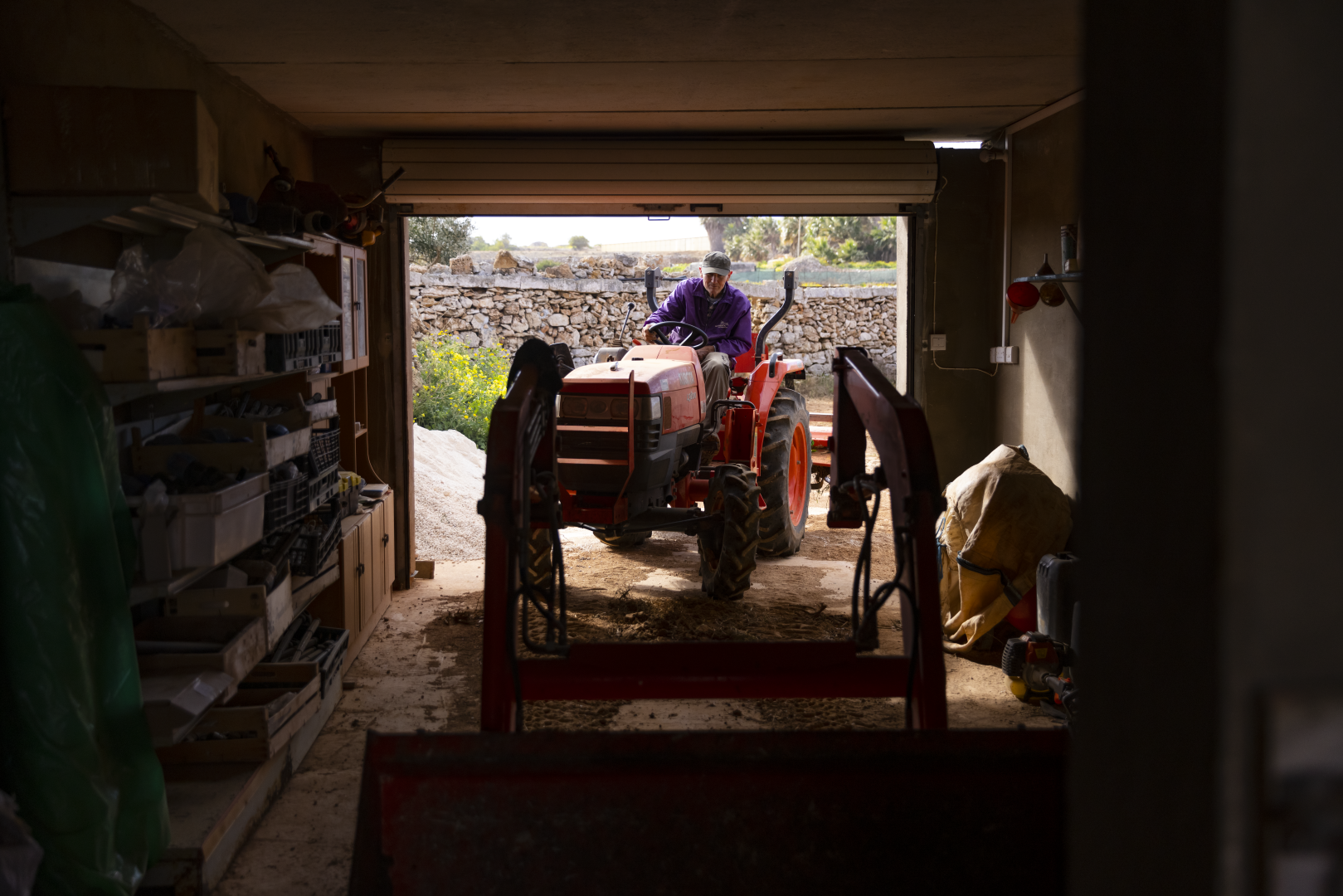As we push open an iron fence, we’re first greeted by Louis’ dog Giola, who fiercely barks as we walk down the dirt road to meet him. Her tough exterior softens as he welcomes us.
Louis is a certified organic farmer based in the rural outskirts of Mellieħa. As a child Louis accompanied his parents to the farm. They sought their children’s help with simple tasks, he says, ‘you start slowly, by carrying something or sowing seeds,’ adding task after task as the years progress. And although Louis started young, he explains ‘I’ve [only] been full-time for the past 25 years.’
He worked in maintenance for several years, before deciding to rediscover his farming routes. He believes that ‘If you’re born into something, you inevitably return back.’ Quoting a Maltese proverb which says, ‘Miskina dik il-tarbija li titwieled ġo post ħażin, għax iddur id-dinja kollha u hemm terġa tmur.’ Louis goes on to say, ‘maybe that’s what happened to me’, quickly adding, ‘but it’s not bad here.’
While touring his farm he crouches down to point out potatoes which have only just begun to sprout, he also mentions beets and later pulls out some carrots. Each field is divided by low lying rubble walls, but various crops grow within.
We eventually arrive in a room which he has converted into a small kitchenette. Just outside are his chickens, who live among some tall bamboo shoots. Our attention turns to the images hung on the walls. A family archive, recording the various figures who preceded Louis.
He points out an image of himself, ‘that’s me, when I had fixed the windmill once.’ A youthful Louis stands proudly in front of the mill. The old structures on the farm have become a quasi-museum of old tools, religious imagery and clothing. Steep stairs lead down to an old war shelter, another room with charred walls served as the kitchen. Other structures housed animals, while upstairs is an old bedroom.
We eventually settle on a stone bench; our conversation is punctuated by the loud screeches of his rooster. Louis tells me, ‘It’s midday, that’s why.’ Giola, now napping on her back – her belly exposed to the warm winter sun.
As a conventional farmer he found that his small operation was not enough to succeed within the structure of the pitkalija. Recognising the rising demand for organic produce he decided to explore a shift.
While he was never one to use many pesticides, he still found gaps in his knowledge of organic practices. He says, ‘I thought I knew a lot, but then I discovered that I actually know very little.’ He adds, ‘I used to ask my mother who was still alive at the time, and I learnt a lot from the people who come to buy.’ Switching to organic brought a newfound connection to the consumer.
Louis looks perplexed as I question him about the possible struggles farming brings – the long hours, physical labour, and uncertainty. Without hesitation he tells me, ‘It’s become part of my life. In the mornings I get up and come straight here, I don’t know how to go anywhere else.’ On days where a heavy downpour may stop him from coming to fields, he feels lost.
A streak of optimism shines through our conversation, no better captured as he says, ‘if something bad happens, then it leaves room for something good to come along.’
